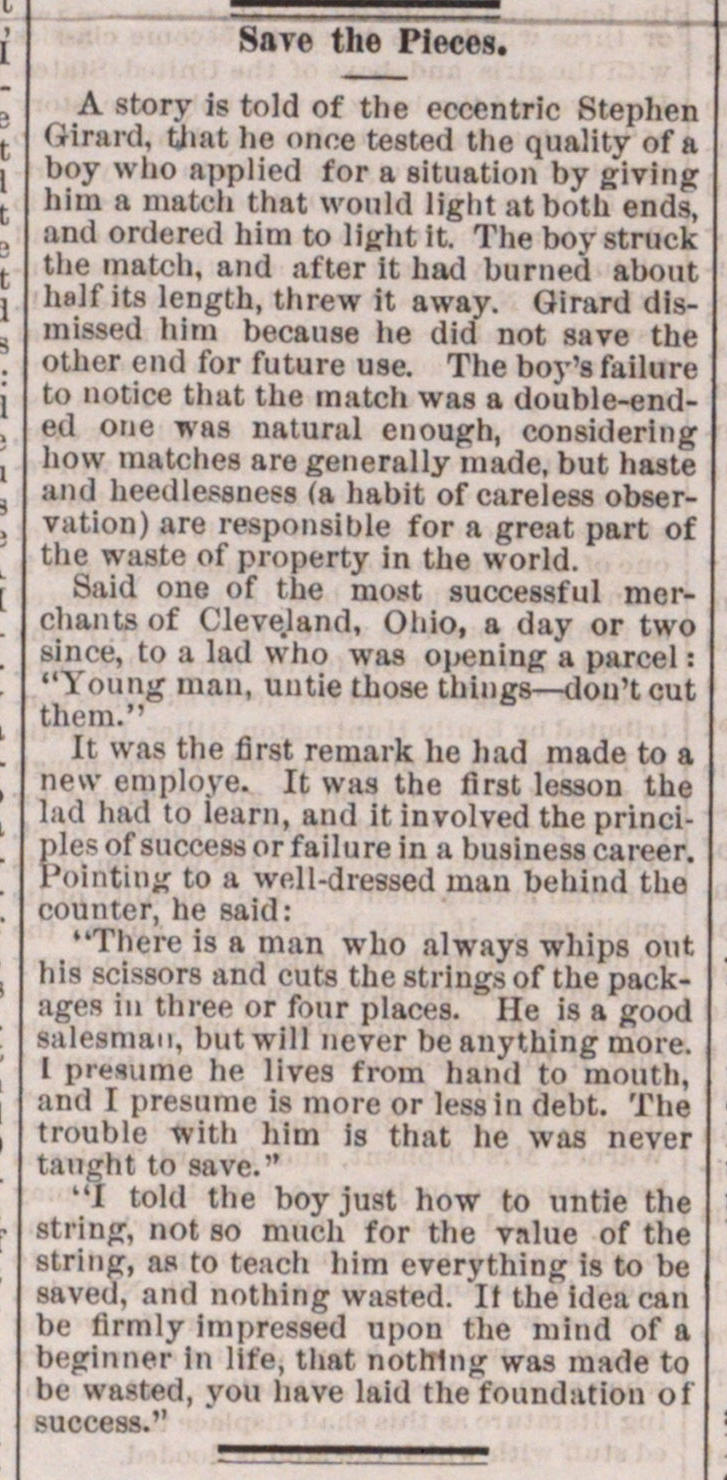Save The Pieces

A story is told of the eeeentric Stephen i.iranl. Unit he once tested the quality of a boy who applied for a situation by giving him a match that would light atboth enda, and ordered him to lijfht it. The boystruck the match, and after it had bornea about half its length, threw it away. Girard dismiM-d him because he did not save the other end for future use. The boy'sfailure to notice that the match was a double-ended one was natural enough, considering how matches are general ly made, but liaste .¦nul heedlessness (a habit of careless observation) are responsible for a great part of the waste of pioperty in the world. Said one of the most successful merchants of Cleve.land, Ohio, a day or two slncé, to a hul who was opening a parcel : "Toung man, untie those thingg - don'tcut thom." It was the first remark he had made to a new employé. It was the first lesson the lad had to leam, and itinvolved the principies of successorfailure in a business career. Polntlnjf to a wull-dressed man beliind the counter, he said: "There is a man who always whips out his scissors and cuts the strings of the packages in Miree or four places. He is a good laleiman, butwtH never beanything more. I preUme he lives from hand to moutli, :ml I preaame is nioieor lessin debt. The troable with him is that he was never taught to save." "I told the boyjust how to untie the strlng;, not so much for the vnlue of the string, as to teach him everything is to be saved, and nothing wasted. I( the idea can e firmly impressed upon the niind of a i írinner In lif'e, that nothiiift was made to be wasted, you have laid the foundation of' success."
Article
Subjects
Ann Arbor Courier
Old News
Stephen Girard
Cleveland Ohio